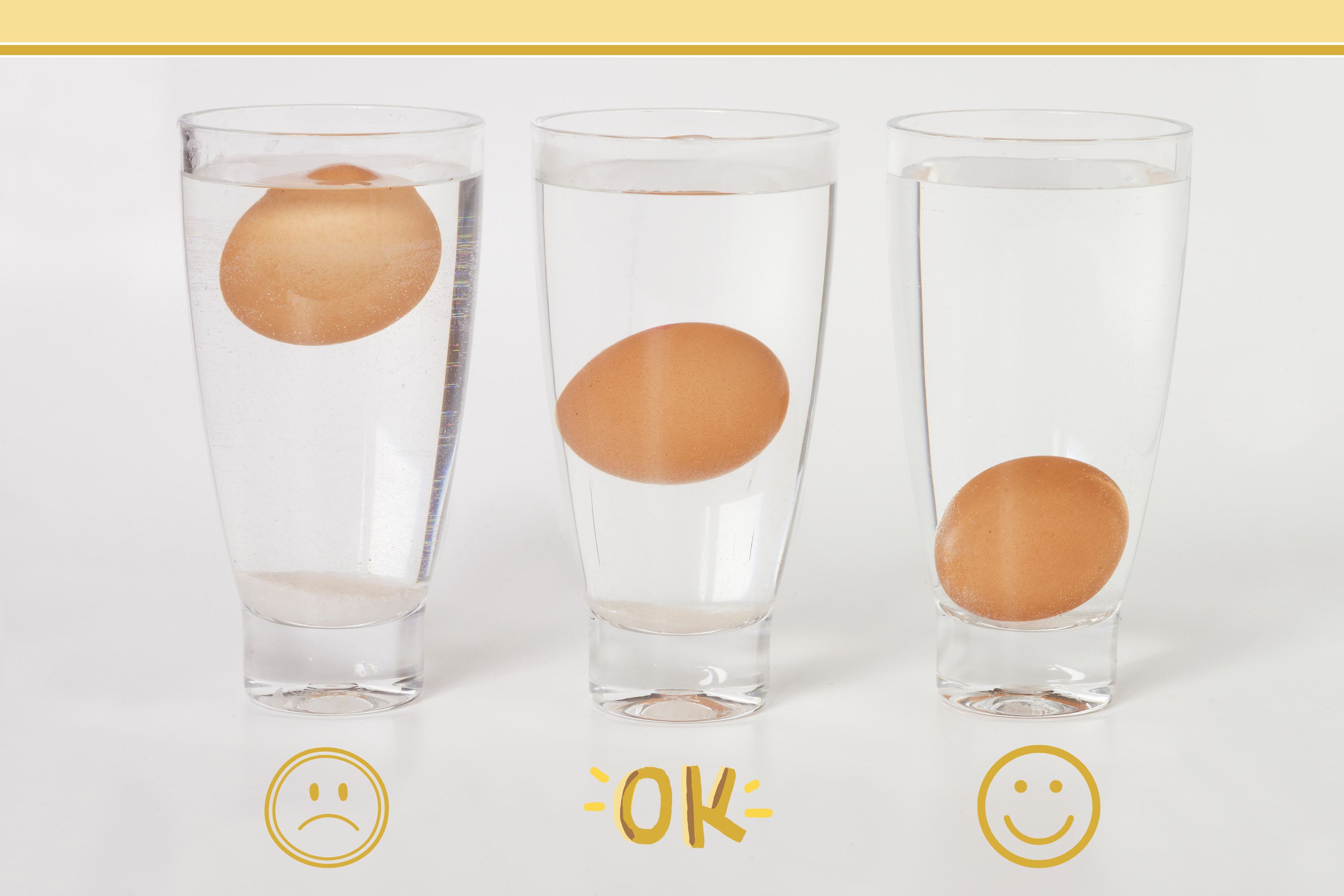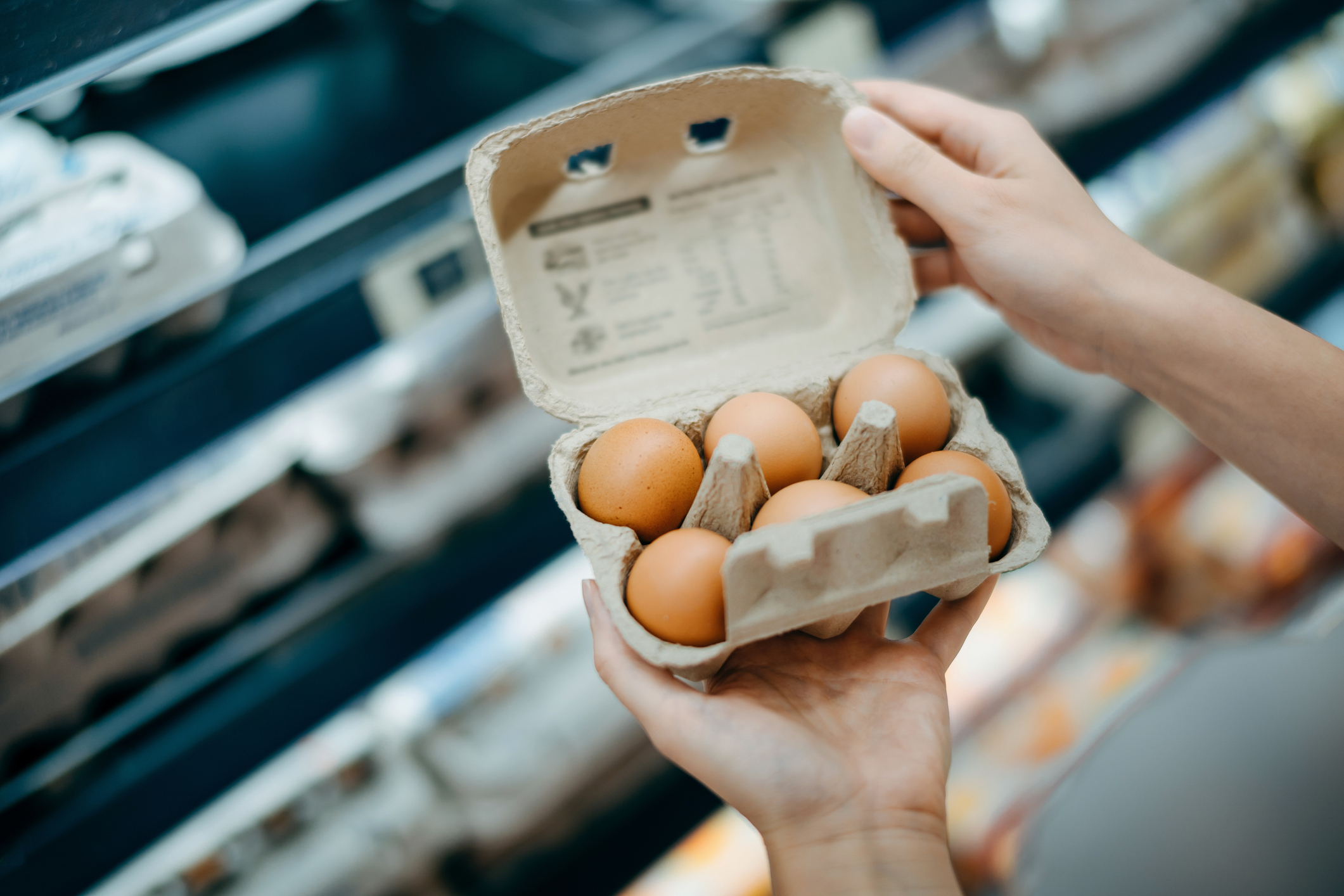Egg float test: How to tell if an egg is bad
Test your eggs are fresh with the egg float test. A great way to make sure your eggs aren't bad and still safe to eat...


The egg float test is a great way to ensure fresh eggs every time. Here's how it works...
With the cost of living crisis well underway knowing how to save money on food as well as how to reduce food waste has become a hot topic. UK shoppers are savvier and now with major supermarkets removing best before dates, it's about encouraging shoppers to use their own judgment when it comes to shop-bought foods.
One of the most wasted foods currently in the UK, according to Too Good To Go, is eggs. We throw away approximately 720 million eggs a year thanks to their best before dates - when they were perfectly fine to eat.
Best before dates indicate when food should be eaten before the quality of the product is impacted, while use-by date reference when it is no longer safe to eat; "the use by date is a DEADLINE but best before is a GUIDELINE, for when to eat your food," says food safety experts, Safefood.
How to tell if an egg is bad
One of the easiest ways to test if an egg is fresh or not is by putting it in a bowl or jug of water. This is known as the egg float test.
If the egg sinks to the bottom and lays flat on its side - it's still fresh. If the egg sinks to the bottom but stands upright - it's less fresh, but still ok to eat finally if the egg floats to the surface, it is no longer fresh enough to eat and should be binned.
Eggs that are still fresh, despite being past their best before date can be cooked and eaten as normal. Eggs which sink but stand upright are fresh but will need to be eaten sooner rather than later - these eggs are perfect for baking. Floating eggs need to be thrown away.
Parenting advice, hot topics, best buys and family finance tips delivered straight to your inbox.
- Fill a bowl or jug with a good amount of water
- Pop the egg into the water
- Wait to see if it sinks or floats
Why does an egg float?
An egg can float in water when its air cell has enlarged to keep it buoyant. This means the egg is old and best to avoid eating.
To test the egg further, you can crack into a bowl or on a plate and examine the smell and appearance of the egg. If the egg smells or has an unsual appearance, it is best to avoid eating as it may lead to serious illness.
How to store eggs to keep them fresh
According to egg info by British Lion eggs, the best way to keep eggs fresh is in their original egg box in the fridge. "For optimum quality and safety, you want to make sure your eggs are kept at a steady temperature below 20’C, so try to avoid moving them too often between very cold and very warm temperatures such as between a hot car and fridge, or fridge and hot kitchen," says egginfo.co.uk.
"Best practice is to store eggs in the fridge; that way the temperature is always at a constant and your eggs will be fresher! When you do get around to using them, try to leave the eggs out of the fridge for around 30 minutes to bring them up to room temperature, otherwise, cooking times could change depending on how you’re using them."
You can keep eggs in the cupboard or pantry but you need to make sure that the temperature is consistently cool and doesn't heat up when the weather improves or you're cooking up a storm in the kitchen as this will impact the quality and safety of the eggs.

The best way to keep eggs fresh is in their original egg box or carton
Can you freeze eggs?
Another way to store eggs is by freezing them. Once you know how to freeze eggs, it's a nifty way to make sure no eggs go to waste. Freezing eggs is a great option for avid bakers or those looking for a regular protein fix.
If you crack an egg into a bowl, give it a little whisk and pour it into a freezer bag or individual ice cube tray, you can make it last much longer. You can freeze egg whites and egg yolks separately. To defrost, pop in the fridge. Never defrost at room temperature.
A post shared by British Hen Welfare Trust (@britishhenwelfaretrust)
A photo posted by on
What do the numbers on an egg mean?
Eggs often have codes or markings on them. If you've misplaced the egg carton and want to find out the best before date (so you can do the egg float test) this is often printed or stamped on the egg.
Alongside the best before date, the eggs are marked with the country of origin, a numbered farming method to tell whether the egg is organic, free-range, barn, or cage as well as farm ID, and a lion mark to say that the eggs are British eggs from hens vaccinated against Salmonella, and follow the strict code of practice.
"90% of eggs produced in the UK are now stamped with the British Lion mark making them safe to be consumed by vulnerable groups even runny or raw (Food Standards Agency 2020)," says the British Hen Welfare Trust.
Related Features:
- Food hacks to save you money
- How to keep fruit and veg fresher for longer
- Egg recipes
Video of the Week

Jessica Dady is Food Editor at GoodtoKnow and has over 12 years of experience as a digital editor, specialising in all things food, recipes, and SEO. From the must-buy seasonal food hampers and advent calendars for Christmas to the family-friendly air fryers that’ll make dinner time a breeze, Jessica loves trying and testing various food products to find the best of the best for the busy parents among us. Over the years of working with GoodtoKnow, Jessica has had the privilege of working alongside Future’s Test Kitchen to create exclusive videos - as well as writing, testing, and shooting her own recipes. When she’s not embracing the great outdoors with her family at the weekends, Jessica enjoys baking up a storm in the kitchen with her favourite bakes being chocolate chip cookies, cupcakes, and a tray of gooey chocolate brownies.